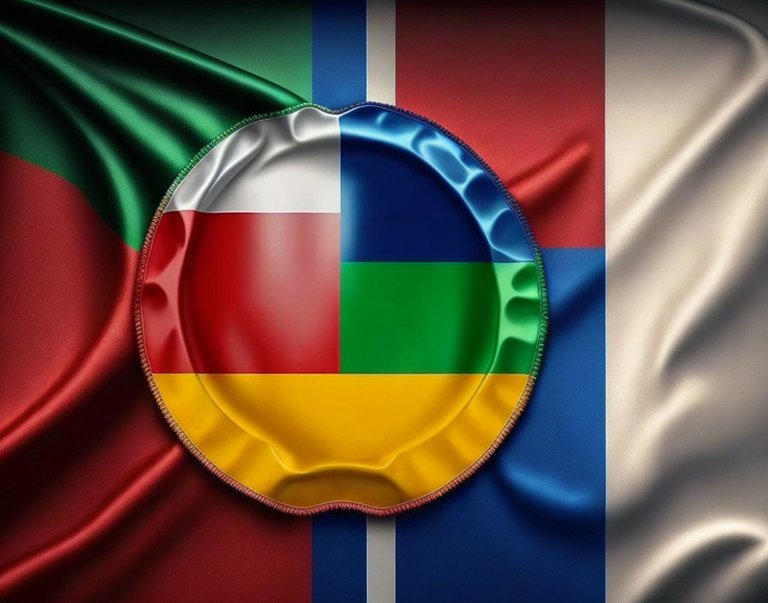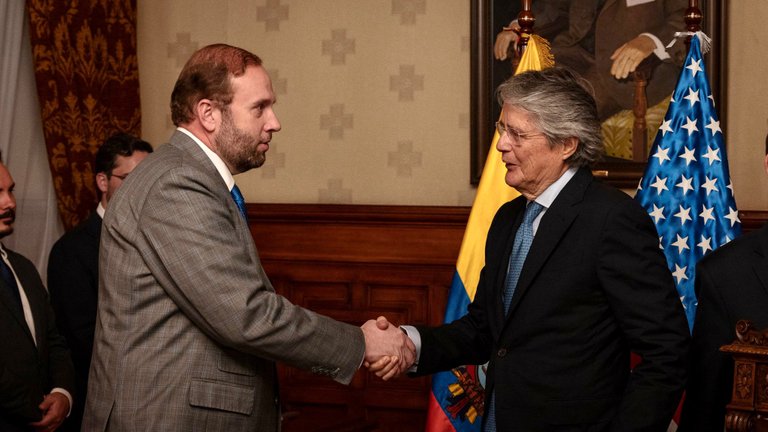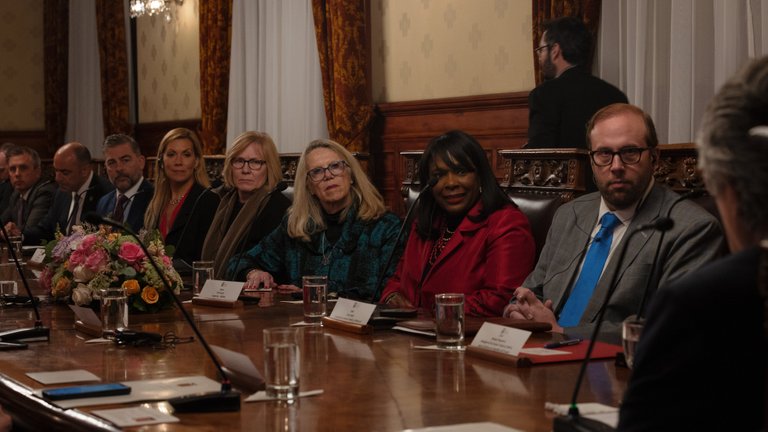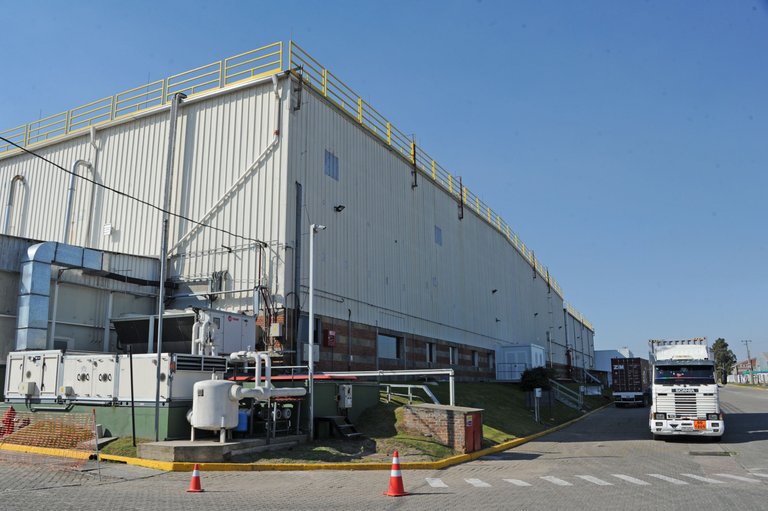The Latin American Report # 8
Hello, hivers. Here you have the eighth delivery of my #latamreports series, where I review the last trends in Latin America's political and economical landscape. We have a more diversified report today so let's go ride on it ya.

Via Deep Dream Generator
El Salvador
The Congress in El Salvador, with a pro-government majority, continues to support the controversial security strategy advanced by the government of Nayib Bukele, which is based on the suspension of a group of constitutional rights such as the guarantee of due process, privacy of communications or freedom of association, in principle to sweep away the "tyranny" of criminal gangs in the country.
This path has been criticized by human rights organizations when they claim that because of it many innocent people have been victims of police actions and other abuses. The U.S. government has singled out Bukele for his approach, which has been harshly responded to by him, especially in the past year.
El Salvador holds the negative record of having the world's highest incarceration rate. It's certainly sad —whatever the level of need, and it is indeed a very violent country, with a socioeconomic, historical, and political base that explains it— that last month a mega-prison was opened there, with a capacity for 40,000 inmates, to alleviate the overcrowding in the same measure that the number of incarcerations should still grow.
Argentina
The Government of Alberto Fernandez said today that the annual inflation data recorded in February, although the worst since 1991, should not torpedo the objective of setting this variable at 60% for the current year. Right now Argentina's inflation rate is among the highest in the world. The South American nation is going through a devastating economic crisis, with a notable impact on the citizenry's welfare levels. This will undoubtedly be a factor in the forthcoming October elections, where the ruling party is playing with its undermined political capital, which has been reduced by its internal wars.
Ecuador
The current Ecuadorian president Guillermo Lasso is being accused by the opposition of harboring people close to him and his political party in an alleged corruption network in public companies. Today, forces loyal to former president Rafael Correa in Congress activated an impeachment process in the Andean nation's parliament.
They were also joined by legislators from the right-wing Christian Social Party, which was allied with Lasso's political group, and other parliamentarians from the indigenous Pachakutik movement and Democratic Left (a social-democratic party). The country's Constitutional Court must give its approval to determine whether the accusation presented meets the requirements outlined in the law, which would enable the Assembly, led by the opposition, to go ahead with the process.
US representatives knock the Lasso's door on China.
On the other hand, it's already recurrent to see Latin America as a specific field of the diplomatic and commercial battle between China and the United States. Yesterday we saw it in the scenarios of Honduras and Mexico, for different reasons, and today our monitoring received the alert of movement in this regard in Ecuador. A "bicolor" (i.e., bipartisan) committee of the U.S. House Ways and Means Committee discussed with Lasso on Wednesday how to "counter China's influence" in the region. Interesting the frank manner in which the issue is being handled.
Jason Smith, chairman of that committee said after the meeting that:
Today [Yesterday], we emphasized the importance of our country’s ties with Ecuador and how both countries can become less dependent on China by developing resilient supply chains in the Western Hemisphere. We must use every tool at our disposal, including trade, to counter China’s influence in Latin America, and I shared my concerns with President Lasso about Ecuador’s expanding trade ties with China. Additionally, Ecuador’s import licensing regime and variable tariffs make it very difficult for American farmers, including beef and pork producers, to export to Ecuador.
 |  |  |
|---|
This is a forever fight, so we will monitor here how it continues to impact the Latin American field.
Uruguay
PepsiCo inaugurated today an extension of its productive infrastructure in the Free Trade Zone of Colonia, Uruguay, a 64 million-dollar investment. The strategic nature of this move was represented by the presence of the Uruguayan president, Luis Lacalle Pou, at the opening ceremony, with Paula Santilli, PepsiCo's executive director for Latin America, attending on behalf of the U.S. multinational.
Uruguay is one of the countries in the region most focused on this type of initiative, betting on free zones with a high concentration of projects with a strong technological base, for which it has developed a legal basis that tends to provide security to investors, which was recognized by Santilli in the ceremony.

 |  |  |
|---|
Photos from the PepsiCo installation in the Free Trade Zone of Colonia. Source.
The Spanish news agency EFE cites information from PepsiCo with interesting data on the profitability of beverage concentrate exports. For example, they represent more than 5% of Uruguay's exports according to official data from the government export promotion agency Uruguay XXI, with more than 700 million dollars in annual income.
Guatemala
We don't usually go through Guatemala, the country with the largest population in Central America. There, followers of the Movement for the People's Freedom (Movimiento para la Liberación de los Pueblos in Spanish), a political party founded by indigenous people and peasants, protested today Thursday in front of several offices of the Supreme Electoral Tribunal to force the acceptance of the candidacy of the presidential candidate they are proposing to participate in the general elections in June.
The Registry of Citizens of the referred institution denied the registration of Thelma Cabrera, the only indigenous woman candidate for the presidency, alleging that her running mate, Jordán Rodas, has not shown evidence that he has no pending issues with the State. The problem seems to be that the bar for registering other candidates with the same situation has not been at the same level. We will return to other reports to delve deeper into this issue.

Thelma Cabrera. Credit: Carlos Sebastián, see here; via Wikimedia Commons and licensed under the Creative Commons Attribution-Share Alike 4.0 International license.
Finance
Most Latin American currencies and stock markets closed positively today, amid a cautious mood around the world as concerns remain regarding the state of global banking after the latest meltdowns and in anticipation of the Fed's monetary policy meeting next week.
The Mexican peso recovered from a losing start and closed up 1.17% against the Reuters reference price on Wednesday; the main stock index S&P/BMV IPC, which concentrates the 35 most liquid companies in the Mexican market, was up 0.81%. Analysts quoted by the British news agency point out that the relief of Swiss National Bank's support for Credit Suisse is partly responsible for the day's trends.
The Brazilian real advanced 1.01%, with the Bovespa index of Sao Paulo's B3 stock exchange climbing 0.74%. The Argentine peso meanwhile ended the day down 0.18%, while the Merval stock index had a good day nominally speaking, reflected in its gain of 6.46% but from an aggregate loss of 16.38% in the last five sessions.
The Chilean peso retreated slightly from yesterday, with the leading index of the Santiago Stock Exchange (IPSA), down by an almost imperceptible 0.01%. Finally, the Colombian peso performed well, closing positive with + 1.12%, followed by an uptrend by the MSCI COLCAP stock index (+ 0.60%).
This is all for our eighth report. I have referenced the sources dynamically in the text, and remember you can learn how and where to follow the LATAM trail news by reading my work here. Have a nice day.
https://leofinance.io/threads/@limonta/re-leothreads-fzwupa7z
The rewards earned on this comment will go directly to the people ( limonta ) sharing the post on LeoThreads,LikeTu,dBuzz.